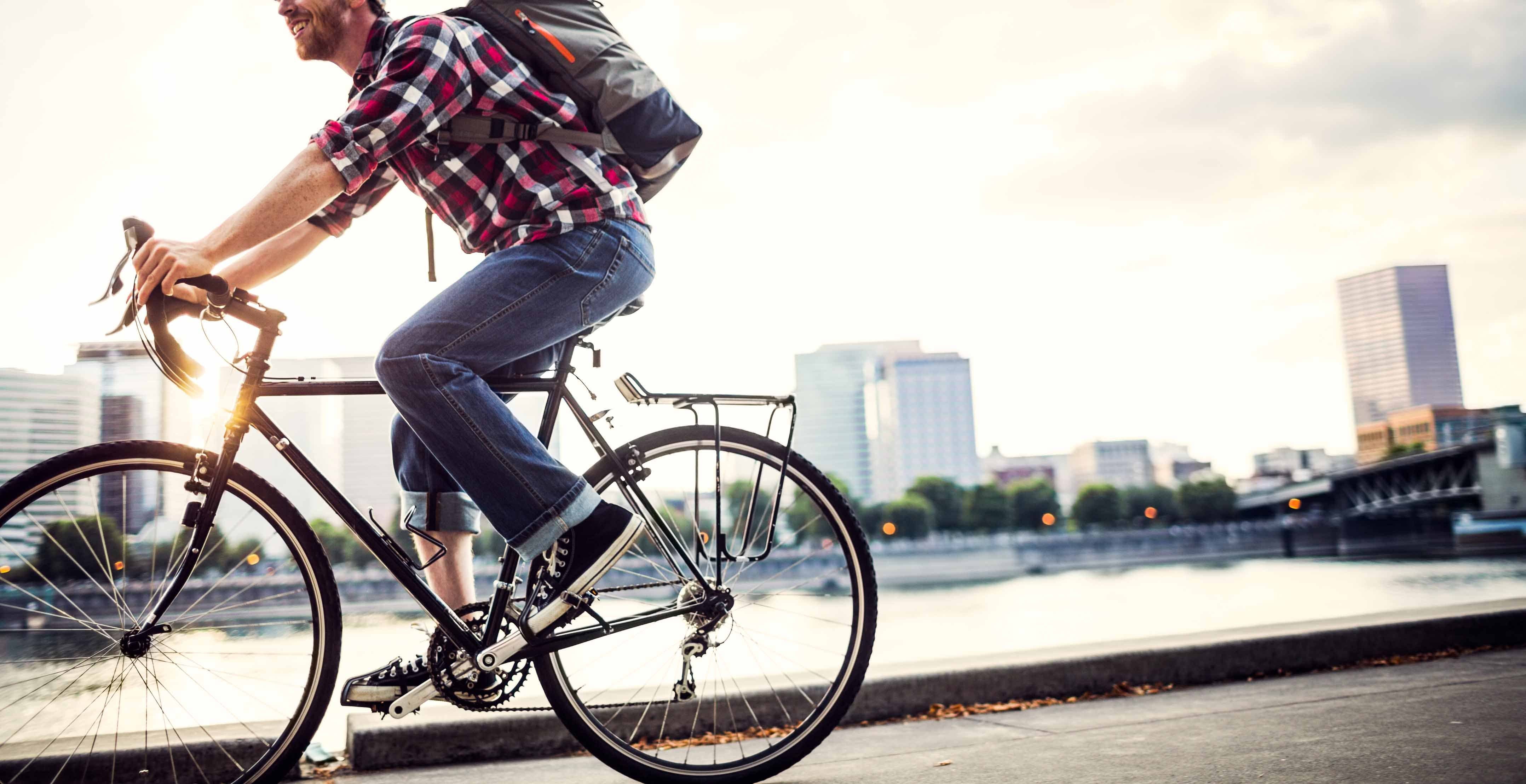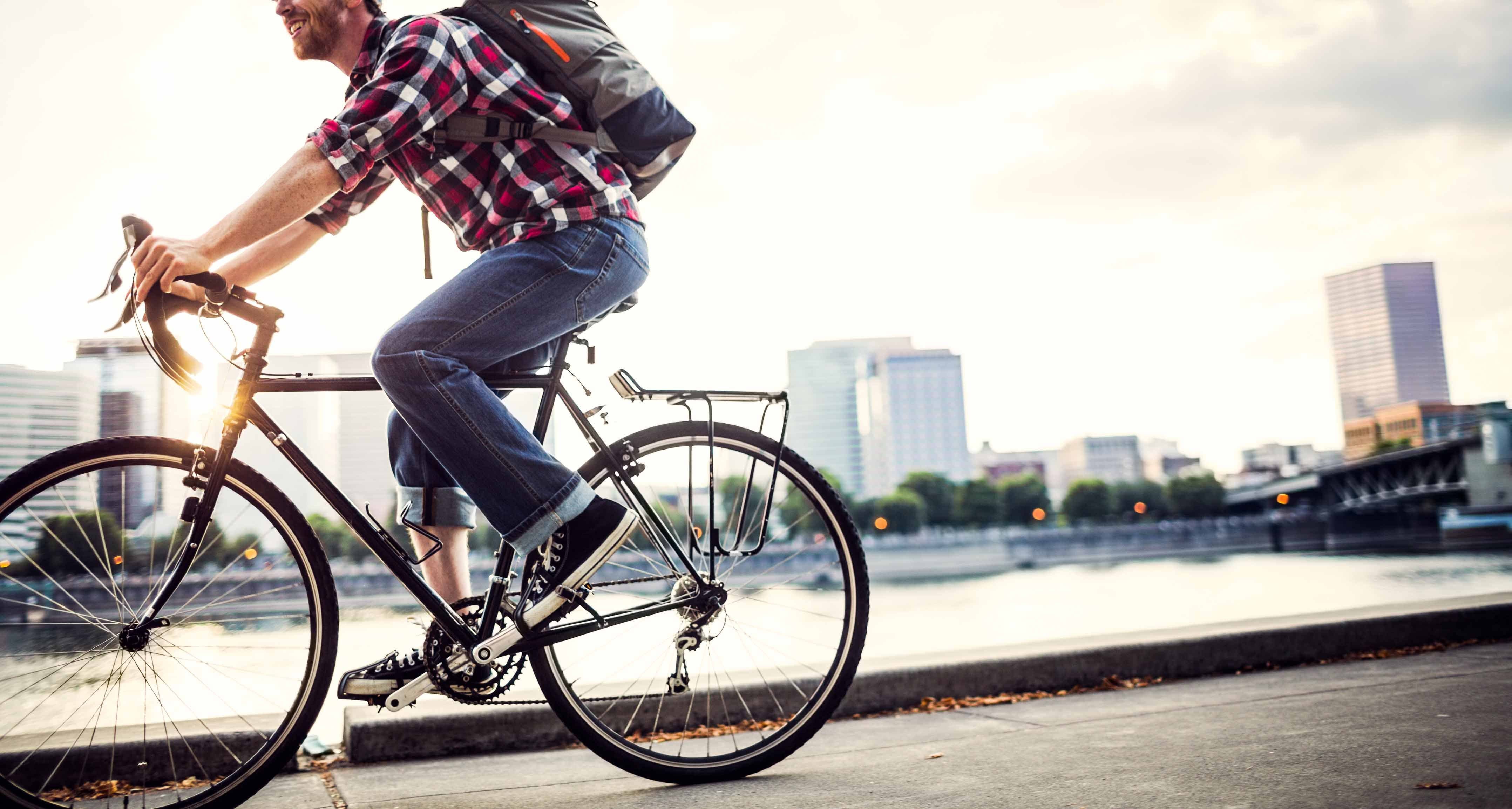Keys to a Healthy Commute


Feel like your commute is getting longer? You probably aren’t imagining it: The average North American’s trip to work has been steadily increasing over the past few decades, clocking in at 26.4 minutes in a U.S. Census American Community Survey.
All that time we spend in cars, trains, and buses isn’t just stressful—it may be leading to an unhealthy lifestyle. A 2016 British study of 1,500 commuters found 33% reported snacking more, 38% spent less time preparing healthy meals, and 41% reported less physical activity because of their commutes. But you’re probably not about to quit your job because of your commute time, so how can you make the experience a better one for your body and mind? Try these expert tips for common commuting conundrums.
Commuting Woe: Traffic is a nightmare.
Try This: Count your breaths.
When you find yourself stuck behind an endless sea of taillights, don’t let your rising stress levels lead to a bad day. “Mindfulness techniques are most useful when we start to get frustrated,” notes Anna Yusim, MD, a New York City–based psychiatrist and the author of Fulfilled: How the Science of Spirituality Can Help You Live a Happier, More Meaningful Life.
Use this simple exercise when you start to feel your blood pressure rise: Take a deep breath in for two counts, then hold it for four counts; let it out for eight long counts. “This way of breathing floods your brain with oxygen while giving your body time to relax,” says Dr. Yusim. Plus, when you focus on the counting, you’re less concerned about the craziness going on around you.
Commuting Woe: You’re starving the moment you get home.
Try This: Make like a Girl Scout (and be prepared).
If you eat lunch around noon or 1, you likely don’t have another chance to dine until six or seven hours later. With that wide of a gap, it’s easy to inhale the contents of your pantry as soon as you arrive at your abode. “That’s a long time to go without eating,” notes Alanna Cabrero, MS, RDN, CDN, a nutrition counselor based in Brooklyn, New York.
Keep some healthy snacks at your work station so you can offset the inevitable munchies with some better options. “Stock up on foods like Greek yogourt and fresh fruit, rice cakes and nut butter, or cheese and crackers for a quick nutritious option,” says Cabrero. In addition, prep some of your dinner options before you leave the house in the a.m. or on days when you have more time so you can get dinner on the table in a hurry. And keep cut-up veggies and/or bean spreads like hummus or lentil dips on hand so you can have a fibre-rich snack when you walk in the door.
Commuting Woe: You’ve got no time to get to the gym.
Try This: Add more activity to your day.
Numerous studies have found that active commuting—making your trip to and from the office less sedentary—is associated with fewer sick days and higher reported levels of physical and mental health. So if you can walk or bike to your job, give it a try.
And if that’s not an option, see if you can add in some measure of activity into your day. “Park in the farthest spot from the office or just build in a few extra minutes of walking into your morning, at lunch, and at the end of the day,” advises Robert Sallis, MD, a family medicine physician with Kaiser Permanente in Fontana, California. “We know that three 10-minute walks can give you the same benefits as one 30-minute session.” If you have a desk job, make it as physically active as you can by taking regular walking breaks or standing up for at least a few minutes every hour. “All these little movements count when it comes to increasing your physical activity,” says Dr. Sallis.
Commuting Woe: You’re exhausted by the time you get home.
Try This: Make a small commitment.
We know: The last thing you want to do after a long day is turn around and go back out again. But just a few minutes of exercise, like taking a brisk walk around the neighbourhood, can help boost your mood and energy levels, so you don’t spend the rest of the night collapsed on the couch.
“Tell yourself you are just going to do something for five minutes. Eight times out of 10, you’ll make it a lot longer than that,” says Dr. Sallis. Too dark, too cold, or just not comfortable heading out on your own? Make your home your own gym and do a quick calisthenics circuit, such as jumping jacks, squats, push-ups, lunges, and a plank pose. Do each exercise for 30 seconds, then repeat the entire series two times.
